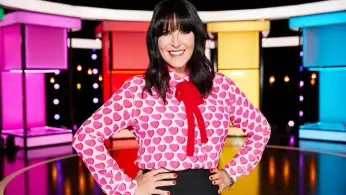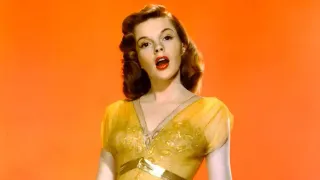
3 hours ago
"Naked Attraction" Host Anna Richardson Shares Candid Reflections on Dating Men and Women
READ TIME: 3 MIN.
Anna Richardson, best known as the host of Channel 4’s boundary-pushing dating show "Naked Attraction," has spoken candidly about her journey dating both men and women, reflecting on her identity and the evolving landscape of LGBTQ+ representation on television. Richardson, who describes her sexuality as fluid, continues to be an outspoken advocate for authentic conversations about love, attraction, and identity, both on-screen and off.
Richardson’s career as a television presenter has spanned decades, but she is perhaps most recognized in recent years for her role on "Naked Attraction," a show that challenges conventional notions of dating by centering body positivity and open-mindedness. Off-screen, Richardson's own story has resonated with many viewers. In a 2015 interview, she stated, “For me, it’s just a case of ‘I am who I am.’ I’m not interested in being labelled gay or straight, my sexuality is fluid. I’m just me. I just happen to have fallen in love with a woman, simple as that” .
Richardson’s openness about her relationships is notable in an industry where LGBTQ+ identities have often been marginalized. Previously, she was in an 18-year relationship with TV producer Charles Martin before dating comedian Sue Perkins, a prominent figure in British comedy and LGBTQ+ advocacy, from 2014 until their amicable split in 2021 .
Richardson’s reflections come at a time when conversations about sexual orientation are becoming more nuanced. Her insistence on not being boxed into a single label echoes the experiences of many in the LGBTQ+ community who feel constrained by binary definitions. “My sexuality is fluid,” Richardson emphasized, a statement that challenges the idea of fixed sexual identities and instead embraces the spectrum of attraction and love .
By publicly discussing her relationships with both men and women, Richardson provides visibility to bisexual and pansexual identities—groups that have historically faced erasure, even within queer spaces. Her candor helps to normalize the narrative that romantic and sexual attraction can change over time and across contexts, an experience shared by many but seldom depicted in mainstream media .
Richardson’s role on "Naked Attraction" extends beyond entertainment. The show itself is known for its unfiltered approach to sexuality, body diversity, and gender, often featuring contestants from across the LGBTQ+ spectrum. This level of visibility is significant in a media landscape where queer people are still fighting for authentic representation .
Richardson’s presence as a bisexual woman in a position of visibility sends a powerful message to viewers, especially younger people exploring their own identities. Her approach—affirming, inquisitive, and judgment-free—sets a tone that is both supportive and celebratory of difference. The impact of seeing someone like Richardson openly discuss her life, relationships, and evolving understanding of herself cannot be underestimated for LGBTQ+ audiences seeking role models on national television.
The growing willingness of prominent figures like Anna Richardson to speak about the complexities of sexuality reflects a broader societal shift. In the UK and internationally, there is increasing recognition that sexual orientation and gender identity exist on a spectrum. Media personalities who model authenticity and vulnerability help to destigmatize conversations that, in previous generations, might have been taboo .
Richardson’s career and public statements align with ongoing efforts to create more inclusive spaces, both on and off screen. By sharing her personal experiences, she contributes to a culture that values honesty and diversity, inspiring others to embrace their own truths.
As "Naked Attraction" continues to spark conversations around sex, dating, and identity, Anna Richardson remains at the forefront, guiding viewers and participants alike with empathy and openness. Her ongoing commitment to challenging stereotypes and fostering acceptance underscores the importance of LGBTQ+ voices in media.
Richardson’s reflections on dating men and women offer a reminder that love and attraction defy easy categorization—a message that resonates deeply within the LGBTQ+ community and beyond .






